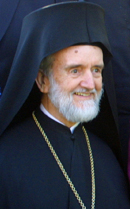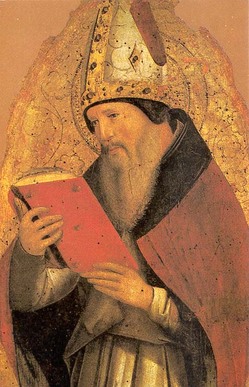Metropolitan
John Zizioulas of Pergamon sent a letter to the Archbishop of Greece and to all
Metropolitans of the Church of Greece reflecting on their acerbic and
uninformed opinion regarding theological dialogue with the See of Rome. Rigid adherence to one’s opinion is sinful. Metropolitan John is a consequential theologian and therefore I think his
insight matters. Clearly one gets the impression he distrusts imprudent public
speculation as to when and how a “reunion of the Orthodox and Catholic Churches”
is to take place. A too hopeful stance is unrealistic and does not account for
the continued dogmatic, ecclesiological differences yet to be resolved. One
wonders if the Catholic theologians and media people actually do their homework
or whether clichés is all they know. There is reason to believe we want to see partial reality.
Your Eminence,
Given that much turmoil has
been unduly created by certain circles, on the subject of the official
theological Dialogue between Orthodox and Roman Catholics, and that views have
also been expressed, which often range between inaccuracy and open falsehood
and slander, I am hereby addressing Your affection in order to clarify the
following:
1. The aforementioned theological Dialogue does not constitute a
concern of the Ecumenical Patriarchate, and much less, that of a specific
person, but is something that is taking place upon the decision of all the
autocephalous and autonomous Orthodox Churches without exception. Specifically
with regard to the present period of the Dialogue, during which the undersigned
has the co-chairmanship from the Orthodox side, the agreement of all the
Orthodox Churches for the continuation of the Dialogue has been recorded in
Memoranda signed by the venerable Primates of the Orthodox Churches, which are
hereto attached in photocopy. As Your Eminence will see when reading
these Memoranda, even the most holy Church of Greece – and in fact with a
Synodical decision – has admitted that “despite the existing difficulties,
which spring from the provocative activities of Unia to the detriment of the
flock of the Orthodox Church, the said Theological Dialogue must
continue.” Consequently, those opposed to the said theological
Dialogue are doubting and judging pan-Orthodox decisions, which have been
reached synodically. By claiming solely as their own the genuine conscience of
Orthodoxy, these people are in essence doubting the Orthodoxy not only of
certain persons – as they misguidedly insist – but of the very Primates and
sacred Synods of all the most holy Orthodox Churches.
2. The same things apply
in the case of the said Dialogue. We are informed that a certain
professor in his letter to the Reverend Hierarchs is censuring the topic of
primacy as a chosen topic for the theological Dialogue, and believes that the
Dialogue should be concerning itself with other matters. But the said
professor is either ignorant of, or indifferent to, the fact that – again – the
topic of the Dialogue was decided on at a pan-orthodox level. The attached
Memoranda, signed by all the Primates of the Orthodox Churches, testify to and
verify this. The most holy Church of Greece thus accepts that “this
discussion (regarding Unia) can, for the sake of facilitating the course of the
Dialogue, be conducted within the framework of ecclesiology through the prism
of the primacy”. This is precisely what we normally intend to do,
during the forthcoming discussion of the subject “The Primacy during the
2nd Millennium”, which is also when Unia first appeared. The remaining
topics that the said professor referred to will by no means be overlooked by
the Dialogue. However, during the present phase, as decided at an
inter-orthodox level from the beginning of the Dialogue, the focal point of the
discussion is Ecclesiology. It is duly respected and legitimate, for the said
professor – or anyone else – to have a different point of view, but it is
inadmissible to be crying out that Orthodoxy is in danger because the Primates
who are shepherding Her do not share his opinion. Where are we heading as
a Church, my Reverend holy brother?
3. It is being propagated very falsely and
conspiringly that the signing of the union of the Churches is imminent! A
professor emeritus of Theology, who is well known for his ill-will towards my
person, had visited a Hierarch of the Church of Greece and had told him that he
knew with certainty (!) that the union had already been signed (in Ravenna!)
and that the relative announcement was a matter of time!!! Clergy and
laity have approached me and asked me if it is true that the union is to be
signed in Cyprus, in October! Obviously, a feeling of unrest is being
attempted among the people of God through this behaviour, with unpredictable
consequences for the unity of the Church. However, those who are
disseminating these things are fully aware (as long as they have not been
blinded by empathy, fanaticism or a mania for self-projection), firstly, that
the ongoing theological Dialogue has yet to span an extremely long course,
because the theological differences that have accumulated during the one
thousand years of division are many; and secondly, that the Committee for the
Dialogue is entirely unqualified for the “signing” of a union, given
that this right belongs to the Synods of the Churches. Therefore, why all
the misinformation? Can’t the disseminators of these false “updates”
think of what the consequences will be for the unity of the Church? «He
who agitates (God’s people) shall bear the blame, whoever he may be» (Galatians
5:10).
Your Eminence,
The responsibility of all of us, and mostly of the
bishops who have been appointed by God to cater to the safeguarding of the
canonical unity of their flock, is an immense one.
What is being jeopardized is
ecclesiological: What is the authority and the prestige of Conciliar decisions?
Do we conform to the Conciliar decisions as we are already doing – and being
attacked for doing so – or do we conform to the “zealots” of
Orthodoxy? Can there be an Orthodoxy and Dogmas without any Conciliar
rulings?
We ask you to please place yourself on the matter, before we are led
to a complete demerit of Conciliar decisions, and before Your flock
disintegrates because of negligence on our part.
In humility and in awareness
of episcopal responsibility, we submit the above to Your affection and judgment
and remain,
in Athens the 26th of September 2009
With Respect, honour and love
in the Lord
+ John of Pergamon
Orthodox Co-Chairman of the Committee for the
Theological Dialogue between Orthodox and Roman Catholics

